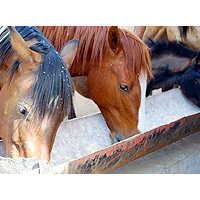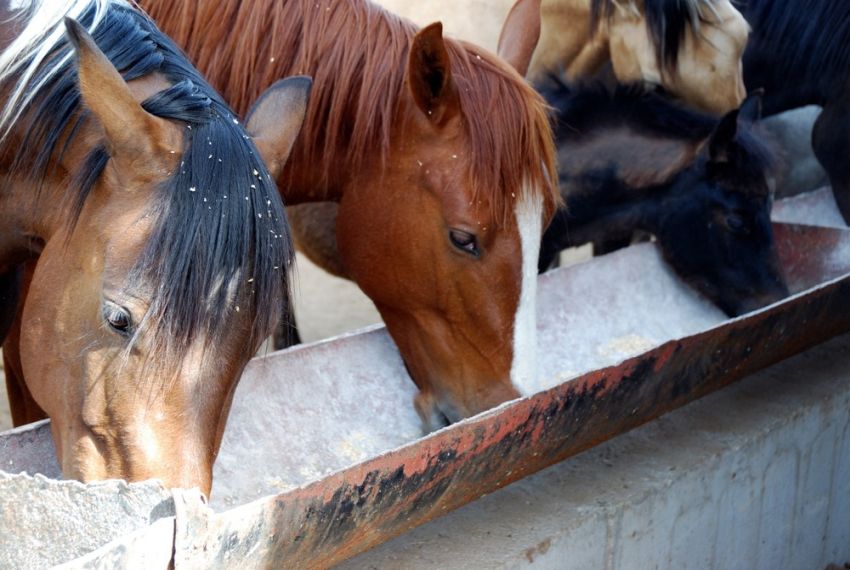Questions to Ask When Buying Horse Feed & Supplements
Author: Pet Station Date Posted: 23 November 2020


When you go online or visit a pet store, all the horse feeds can be overwhelming to look at, making it hard to decide which one to buy. Apart from asking the question "what do horses eat," there are other questions you should ask that will help you find the right feed for your horse.
1. How old is your horse?
This is the first question you should ask and the most crucial one. When it comes to horse feeding or horse treads you need to make sure that it gets all its nutrient requirements, which is determined by its age. If your horse is still young (birth to two years), its nutritional needs are driven by growth. It's another story for senior horses.
For young ones, nutritional demand is high. This is because they need more proteins, minerals and vitamins to support their growth. Most commercial growth and development horse feeds you'll find contain protein contents between 14% and 16%.
For old and senior horses, their nutrient requirements are also different. However, a senior horse doesn't necessarily mean an old horse. Horses will be considered senior if they can no longer eat the same diet and maintain their body condition. Feeds for senior horses are easier to chew and highly digestible plus it contains high fibre content, which usually replaces the fibre that they can no longer chew. This type of horse feed is usually pelletized and in some cases, soaked to produce a mashy feed for easier consumption by the horse.
2. What's the current physiological stage of your horse?
The physiological stages of your horse include stallion (breeding or non-breeding), pregnancy (early, mid, or late gestation), lactation, growing (foal, weanling or yearling). You can easily characterise your horse's physiological stage and their specific nutritional requirements. Make sure to choose the right horse feed appropriate for its physiological stage.
3. How do you use your horse?
The way you use your horse or its level of activity should also be considered when buying a horse feed. Its level of activity depends if you're using the horse for maintenance or working and how intense the activity is--light, moderate, heavy, or very heavy exercise. To evaluate the activity level, you must check how much work it does. If your horse is being ridden between 0 to 4 days a week at 30-60 minutes per ride undergoing walk, trot, and canter will be considered maintenance to light exercise.
It is crucial to estimate the level of activity right. Overestimating and underestimating may result in the thinness or the fatness of your horse. This practice will compromise the amount of nutrients that your horse is receiving. Make sure to feed your horse the appropriate amounts according to the directions of your horse feed.
4. Does your horse have any relevant medical issues?
This is also an important question to ask when buying a horse feed or horse diet supplements. Your horse might be recently diagnosed with a relevant health condition such as gastric ulcers, allergies, kidney problems to metabolic diseases such as tying-up, obesity, insulin resistance, laminitis, and Cushing's.
Experts only make diagnoses, please avoid doing self-diagnoses to make sure that the medical issue is correctly addressed. If your horse has any relevant medical condition, we recommend that you work with an equine nutritionist to have a diet specific to your horse's needs.
5. What is the current weight and condition of your horse?
It can be challenging to weigh your horse, especially because most people do not have access to livestock scale. If you can weigh your horse, do so. If not, you can get a weight tape which you can find in most pet stores, or you can also use a simple measuring tape. You can weigh your horse by measuring its heart circumference, the length of the horse from point to the shoulder to the point of the buttock. Then, use this equation to estimate the body weight: heart girth (cm) x heart girth (cm) x Length (cm) / 11900 = Weight (kg).
Another useful tool you can use to determine its current condition is the Body Conditioning Score (BCS). This process involves the visual and palpitation assessment of the e degree of fatness of various areas of the horse, which includes over the ribs, tail and area, neck and withers, and shoulders. Regular condition scoring of your horse will help you decide whether your horse needs to gain or lose weight.
6. What forage do you have?
As part of your horse food, your equine foundation programs should also have forage, which includes hay and pasture. The horse feed that you choose should complement forage you have. For example, if you have ready access to pasture and good quality hay, you won't need to add too much horse feed to reach the nutritional requirements. Low intake ration balancer products are the best choice for these conditions.
Depending on what type of hay you have, this will influence the horse feed's concentrate choice. Lucerne hay has higher protein and energy than some grass hays which is why it is an excellent addition to feeding programs that require additional calories for horses with moderate to heavy activity, broodmares, and growing animals.
When choosing the right feed for your horse, you must ask these questions first. Remember always to follow the feeding instructions on the bag of horse food you choose. Once you have identified the answers to all these questions, you can now narrow down the choices and pick the best one for your horse.
Here at Pet Station, we understand that you always want what is best for your animals. That is why we only offer the best horse feeds and horse feed bins at competitive prices. Feel free to browse all our products and if you have any questions about our range of horse products, get in touch with our friendly and experienced team members who are happy to go above and beyond for you and your furry friends.





